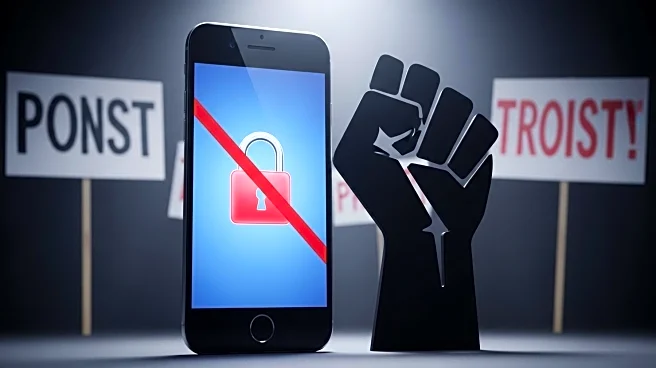What's Happening?
In Kathmandu, Nepal, police opened fire on demonstrators protesting a government bill aimed at regulating social media platforms, resulting in at least 17 deaths. The protests erupted in response to the government's demand for social media companies to register and comply with local oversight, which critics argue is a move to curb freedom of expression. Major platforms like Facebook, X, and YouTube have been blocked for non-compliance, while others like TikTok have registered and continue to operate. The situation remains tense with ongoing protests and a curfew imposed around key government areas.
Why It's Important?
The regulation of social media in Nepal highlights the global tension between government control and freedom of expression. The deadly protests underscore the public's resistance to perceived censorship and the potential for civil unrest when digital freedoms are threatened. This situation could influence international perceptions of Nepal's governance and impact foreign relations, especially with tech companies. The outcome may set a precedent for other nations considering similar regulations, affecting global internet governance and digital rights.
What's Next?
The Nepalese government has imposed a curfew and continues to face pressure from both domestic and international communities. The ongoing protests suggest that further clashes may occur, potentially leading to more casualties. Social media companies may need to negotiate with the government to restore access, while rights groups could intensify their advocacy against the bill. The international community may also weigh in, potentially affecting Nepal's diplomatic relations and economic ties.










